2017 Yamaha EX Deluxe Review
The flagship of Yamaha's affordable EX line benefits from RiDE system
The “Rec Lite” category was created by Sea-Doo as a way to help define the somewhat undefinable Spark. This year, Yamaha cemented Rec Lite’s place in the personal watercraft hierarchy by introducing a trio of appropriately positioned models, the EX series. Scaled down in both size and horsepower from the brand’s previous offerings, the EX models offer a more affordable entry into the market for those that prefer the Yamaha brand. The EX flagship? The aptly named EX Deluxe.
Economies of Scale
Engine: Three-cylinder 1,049cc
Fuel Capacity: 13.2 gal.
Stowage Capacity: 7.7 gal.
Seating Capacity: 3
MSRP: $8,599
What makes EX models different? Start with that physical size. EX dimensions are 10’ 3” x 3’ 7”, slimmer and roughly 9” shorter than the VX line. Weight on the Deluxe is a relatively lightweight 599 pounds. Styling is reminiscent of the VX and FX models, but similarly streamlined. The EX lacks the distinct, angular bow storage door and integrated mirrors that define the other two lines. You’ll also get less intricate detailing and a narrower saddle. Yamaha accomplished the latter in clever fashion. The seat base is actually a sub-cowling, made of a composite that bolts to the deck. It allows the saddle to have its necessary slimmer dimensions, yet offers adequate access to the engine for routine owner maintenance like checking oil levels or charging the battery. The entire cowling can also be quickly removed to offer easy access to the entire engine compartment for dealer service.
Simpler doesn’t mean Yamaha scrimped on the details. For starters, the brand retained its trademark SMC hull and deck construction, the same basic material featured on all models. Familiar Hydro-Turf mats, in two-tones, line the footwells. Grips are the same functional pistol style you’ll find on flagship craft. Looking for obvious differences? Storage is minimal, with only 7.7 gallons. It’s wisely allocated, however, with Yamaha opting to go deep on the within-easy-reach glovebox (complete with a foam bottom), and shallow on the bow tub and underseat nook.
The key differentiator on the Deluxe model, however, is Yamaha’s heralded RiDE system. Best described as dual throttle levers, RiDE pairs the traditional righthand throttle with a lefthand lever that electronically activates the reverse bucket. At higher speeds, pulling the RiDE lever will drop the bucket into the flow of water leaving the pump and redirect it forward and to the sides to rapidly slow the craft while keeping the hull level in the water. At slower speeds, RiDE provides reverse, with increasing force as the lever is pulled tighter. There’s no switching of “gears” or hesitation. It’s on when pulled, off when released. Release both the normal throttle and RiDE lever and the craft assumes a neutral position, with the bucket deflecting water just enough to keep the boat stationary in the water.
Familiar Ratio
This smaller package requires less horsepower. Yamaha filled the EX engine compartment with a slightly milder, 100hp version of the 1,049cc TR-1 engine. It features a smaller, lighter muffler and exhaust manifold, and simpler power train. The flywheel is one unit with the coupler; pump stator and impeller housing are one molded piece. It’s simpler, less expensive to fabricate, and possible because of the lower horsepower.
The resulting performance is on par with the category. Squeeze the throttle and you’ll note acceleration similar to the VX, and a top speed of 50 mph, a slight improvement over the competitive Spark. Yamaha notes impressive fuel efficiency, suggesting a 14% improvement over the Spark, although we were unable to confirm this advantage without fuel-flow testing. The EX’s 15.9-gallon fuel capacity is double that of the Spark.
As to handling, think VX. As the existing hull was admittedly used as a starting point, the EX features similar characteristics. Stability is top notch, a priority for an introductory model. It’s looser and more playful, however, it can carve a serious corner with just an adjustment of weight in the saddle. It’s also capable of hauling three passengers and towing the kids skiing or the crew tubing, wakeboarding or wakeskating.
Deluxe Appointments
What else does the Deluxe bring to the table? In addition to RiDE, the Deluxe also gets a spring-loaded boarding step, mirrors, a two-tone cut-and-sew construction saddle, and both metallic paint (in Azure Blue or Silver/Torch Red) and more elaborate graphics. It all adds up to a $2,000 premium over the base EX model.
As to whether the extras are worth the increased cost is up to the buyer. We would argue that RiDE, however, makes the Deluxe a more complete craft. If you’re looking for ultra-affordable you may be willing to sacrifice reverse for the cost savings, but if you’re looking at a more long-term investment, RiDE makes the jump to the Deluxe model worth strong consideration.
Either way, Rec Lite is no longer just a novelty class designation for one brand’s unique model. It’s the path to more affordable entry into the market.
Get PersonalWatercraft.com in your Inbox!
Like PersonalWatercraft.com on Facebook
Comments
Most Popular
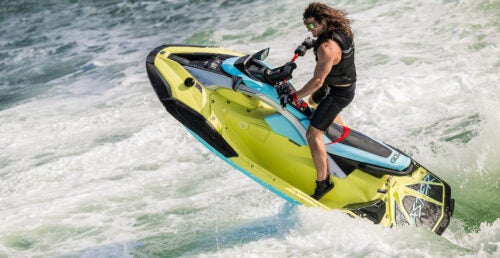
2025 Yamaha JetBlaster PRO 2-Up Review
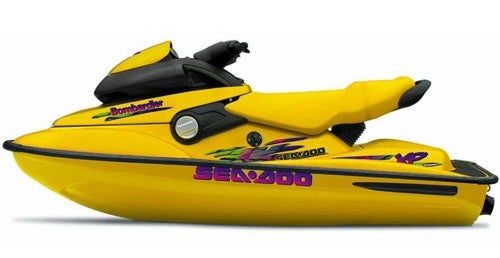
Remembering the Sea-Doo XP
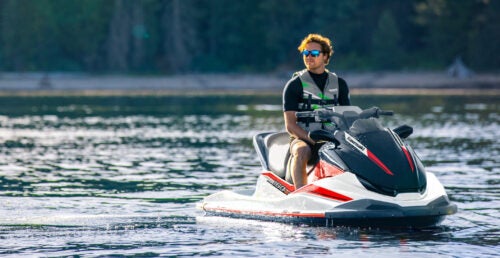
2024 Kawasaki Jet Ski STX 160X Review
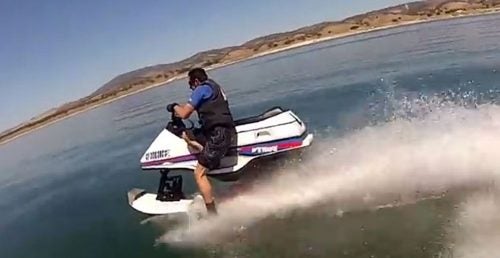
Whatever Happened to the Wetbike?
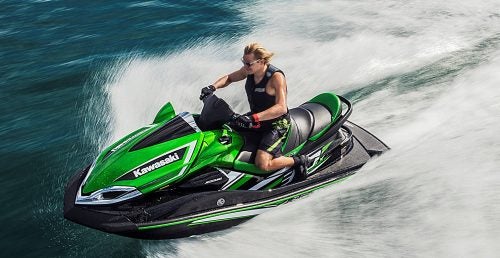
2017 Kawasaki Jet Ski Ultra 310LX Review
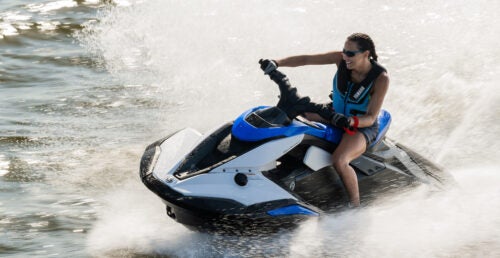
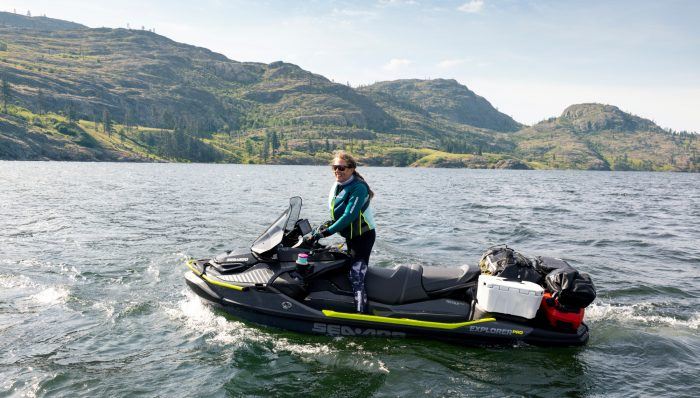
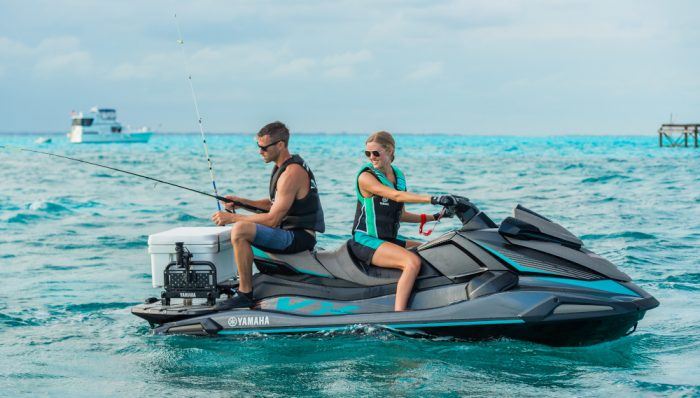
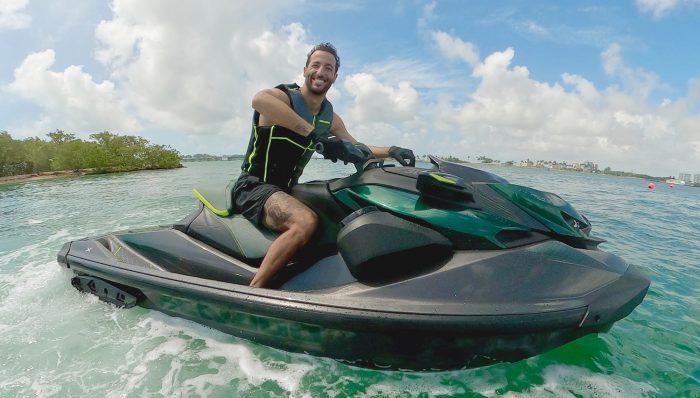
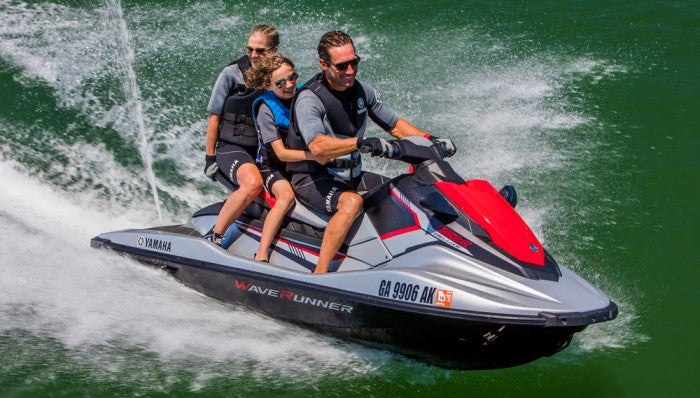

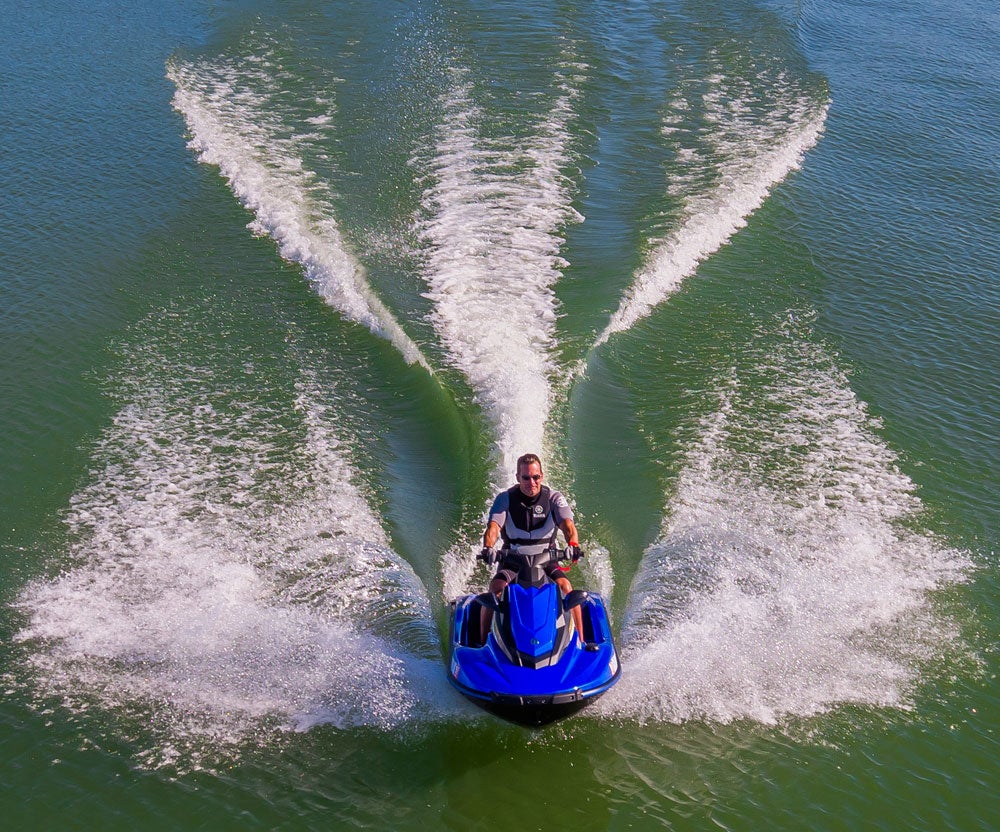
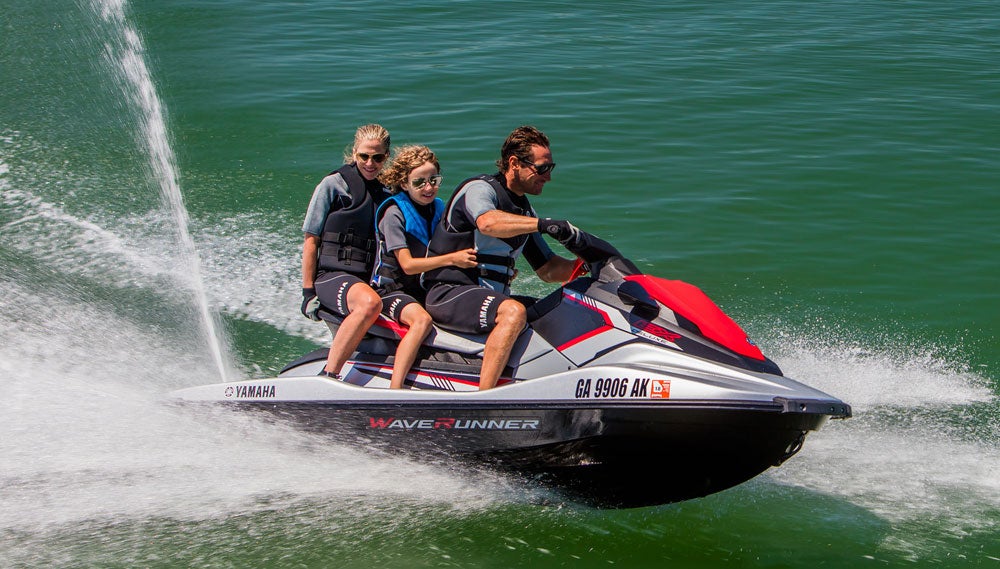
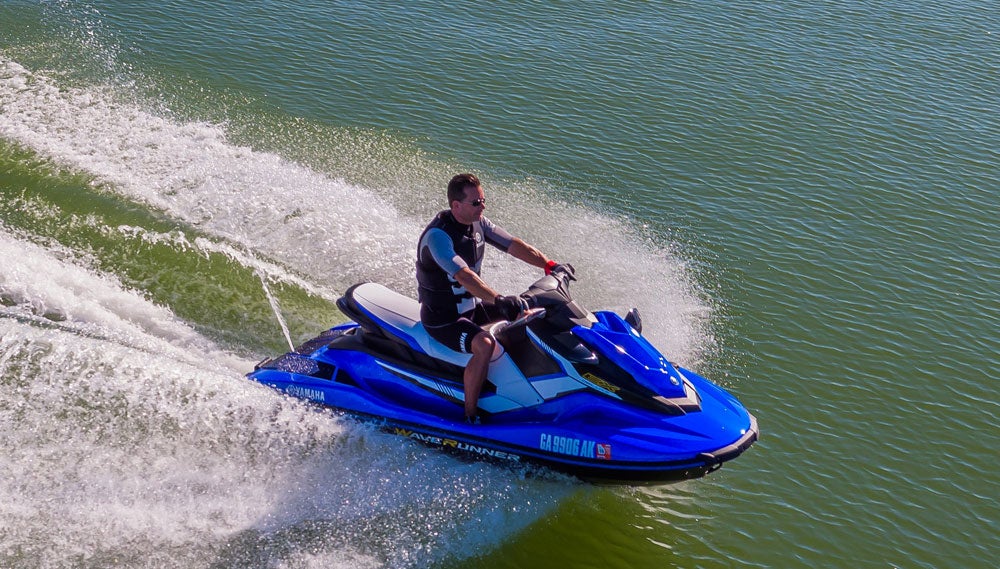





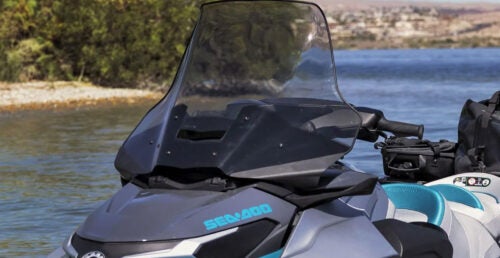
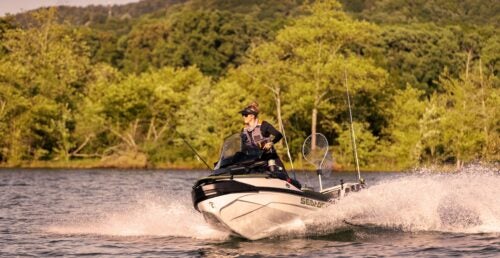


 Your Privacy Choices
Your Privacy Choices